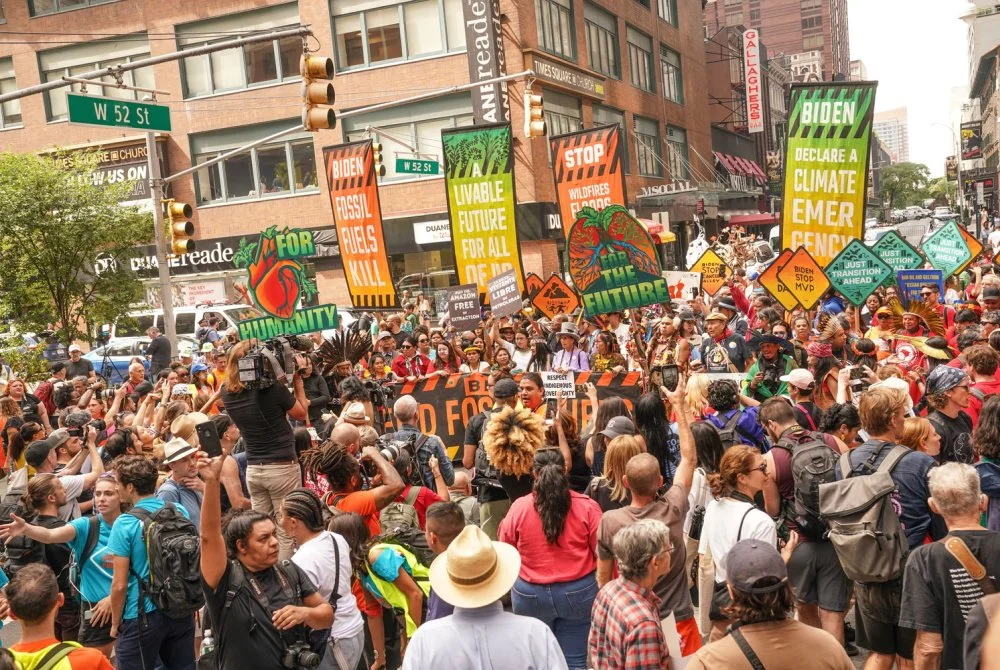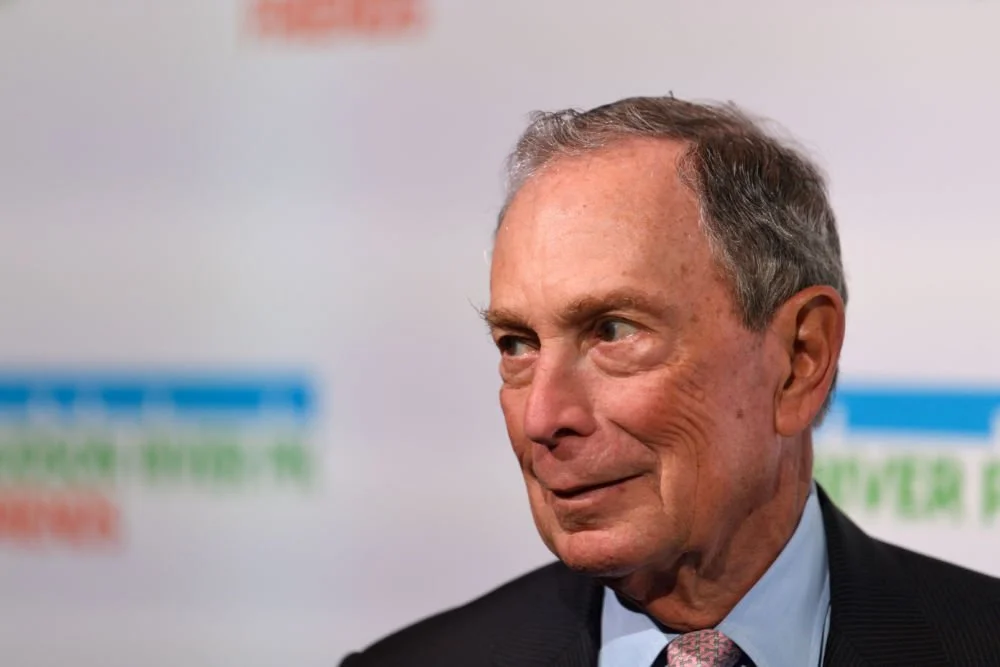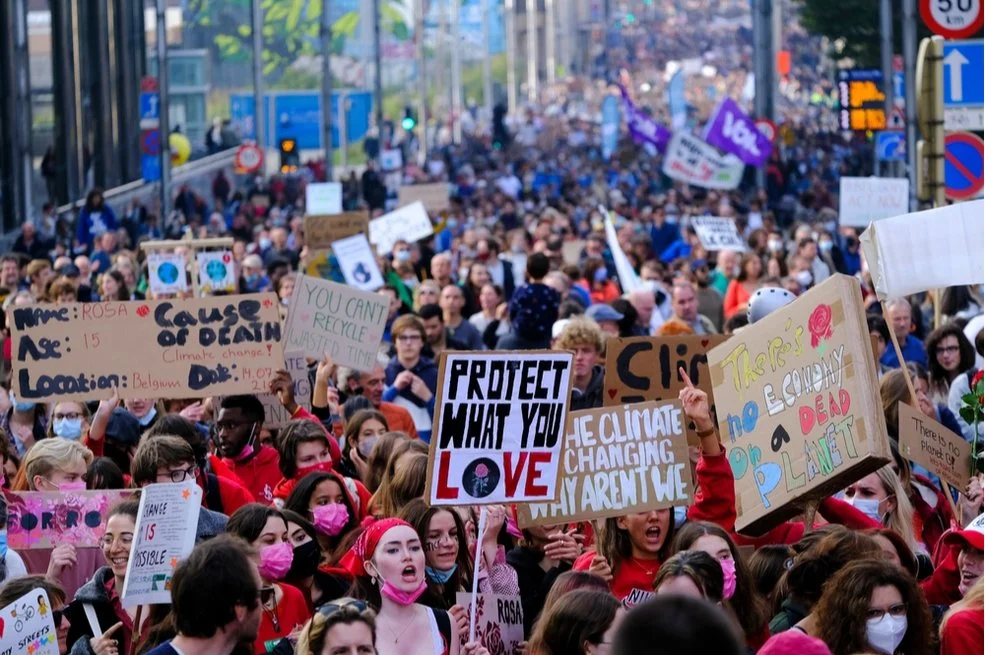
I launched Inside Philanthropy in early 2014, around the same time that Michael Bloomberg finished three terms as mayor of New York City and immediately embarked upon a breakneck expansion of his giving—tapping a vast fortune that’s only grown bigger.
When Bloomberg left City Hall, he was worth about $35 billion, and in his first year out of office, gave away $462 million. Today, Bloomberg is worth $54 billion and last year gave away $767 million—funding that reached 129 countries. That figure doesn’t include many millions more for 501(c)(4) advocacy on guns and other issues. Oh, and last year, Bloomberg spent $100 million to help flip the U.S. House of Representatives.
Few mega-givers better exemplify Big Philanthropy than Mike Bloomberg. Like so many of his peers in this rarefied world, Bloomberg keeps getting richer even as he steps up his giving. And like a multiplying number of billionaire donors, he knows how to pull all the levers of influence that wealth can buy, mixing data-driven grantmaking with strategic political spending.
For these reasons, I’ve been watching Bloomberg like a hawk for years. And as he now enters the Democratic primary, I wanted to pull together a few thoughts on his giving and also share some of two-dozen or so articles that I and other IP writers have written about Mike and his foundation.
Overall, there are few leading philanthropists that impress me more than Bloomberg–but he also has some key weaknesses that underscore the broader shortcomings of Big Philanthropy.
Big Challenges, Big Responses
First the upsides: Bloomberg is an exceptionally sophisticated giver who focuses laser-like on critical challenges and deploys mountains of cash to achieve measurable impact. On the cause that he’s given the most for, reducing deaths from tobacco use, Bloomberg has devoted more than $1 billion to a problem that kills over 7 million people worldwide every year—and yet is tractable via tested policy and public education tools. He’s followed a similar playbook in seeking to reduce traffic accidents, which now claim about 1.3 million lives a year. On climate change, he’s given game-changing amounts of money to shut down coal-fired power plants across the U.S.—bankrolling a sprawling fight waged by the Sierra Club that’s often played out locally and scored repeated success, even as the national policy debate has deadlocked in recent years.
There’s a lot more I could say about the savvy ways that Bloomberg has pressed his philanthropic agenda on these and other issues. Last year, for example, he emerged as the only mega-giver in the U.S. who has stepped up to take on the deadly opioid epidemic. His foundation is now deep into a sophisticated initiative to identify and scale solutions to an addiction crisis that claimed more than 50,000 lives in 2018. Bloomberg Philanthropies has also been moving to support important new work to expand economy mobility in the U.S., joining donors like Gates, Ballmer and CZI in what we’ve called “the new billionaire war on poverty.”
But even though there’s much to like about Bloomberg’s giving, the limits to his approach are also clear—and say a lot about how today’s Big Philanthropy falls short.
The Limits of a Technocratic Approach
The anti-poverty funding I just mentioned is a case in point. Although this work is still quite new for Bloomberg, it exemplifies his approach. Bloomberg Philanthropies is among the funders of Raj Chetty’s institute at Harvard, Opportunity Insights, which is heavily focused on using new data to drive policy innovation, and it is also working with other billionaire funders on another data-driven project on economic mobility that’s an offshoot of Bloomberg’s What Works Cities initiative.
All this work is important. But there seems to be little acknowledgement by Bloomberg, Gates, Ballmer and other new funders in the anti-poverty space of how deeply entwined issues of poverty are with entrenched power dynamics that involve race and class, not to mention the profound unfairness of an economy where 44 percent of U.S. workers are in low-wage jobs, according to a recent Brookings study, even as corporate profits soar to record highs and the 400 richest Americans have a combined net worth of $3 trillion. This inequity isn’t mainly a policy problem. It’s a political problem.
To reprise points I made last year about Bloomberg, what’s missing from his brainy philanthropy is a clear set of underlying values.
Bloomberg’s giving is all about problem solving, driven by data, to improve the human condition. Analyzing his annual philanthropy letter published early last year, I noted that there was virtually no explicit mention in the letter, or the foundation’s 100-page annual report, of such ideals as equity, inclusion or fairness.
At another historical moment, Bloomberg’s anodyne pragmatism and unstated assumptions about the common good might not be a major weakness. But it is right now, amid fierce values-based conflicts over how society should be organized.
There’s little consensus in America today over basic normative questions like how much we should help the least fortunate among us, who should be included in our democratic polity with full rights, the degree to which we should regulate market actors to protect the public, how interdependent America should be with other countries, and what ecological constraints humans are confronting. Increasingly, there’s no longer even agreement over basic facts. American politics, many commentators have noted, has taken a tribal turn.
Doubling Down
Bloomberg’s approach to these deep and growing divisions has largely been to double down on his distinctive blend of scientific rationalism and can-do localism. In announcing his bid for president, he said, “I offer myself as a doer and a problem solver—not a talker.” In fact, though, what’s needed most to make progress on key challenges like equity and climate isn’t smarter public policy; it is moral argument and persuasion that can build a new consensus on such issues, along with the political empowerment of marginalized Americans so that all voices are truly heard in U.S. life.
As I’ve argued before, a lot of foundations and philanthropists don’t seem to understand how power really works in America or what it takes to defend their core values against growing attacks. Bloomberg is an exception in many ways, judging by his hard-hitting work on guns and climate, and his big investment last year in flipping the House. But in other ways, he perfectly embodies the technocratic faith that stands at the center of much modern philanthropy.
In particular, Bloomberg’s abiding belief in the potential of localism is a key part of that faith. In his annual letter last year, for example, he said—in effect—“sure, the crazies have hijacked national politics, but sane people are gaining ground locally.”
“While it doesn’t attract national headlines, there is a growing movement of big cities and small towns that are striving to use data to improve the performance of government and the lives of their citizens. Unlike those in Washington, mayors and other local officials cannot get away with constructing alternate realities or playing partisan games,” he said.
It’s a hopeful vision, except for an obvious snag: Pragmatic localism can only go so far in improving people’s lives. Place-based progress is often stymied or washed away by structural economic forces that only the federal government has a chance of taming.
Increasingly, too, local progressive gains are being blocked by “preemption” laws passed by Republican-controlled state legislatures. And in the not-too-distant future, we’re likely to see conservative courts blocking any number of policies passed at the subnational level, as well as rolling back even more parts of the New Deal/Great Society legacy—just as such courts routinely sided with powerful interests in the early 20th century.
Enough said. Below are some of IP’s many articles on Bloomberg’s giving.






.jpg)
.jpg)
.jpg)
.png)

.png)



